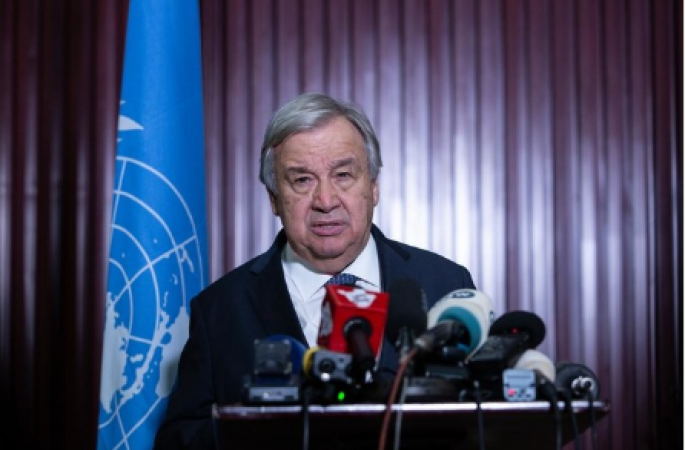
USA: In order to stop famine in the Horn of Africa, which is suffering from the worst drought in decades as a result of rising global temperatures, $2.4 billion was raised at a conference supported by the UN on Wednesday.
According to a statement from the UN's OCHA humanitarian agency, the funds will provide assistance to nearly 32 million people in Ethiopia, Kenya, and Somalia that will save their lives.
Famine has been avoided in part due to the heroic efforts of local governments, humanitarian organisations, and authorities, as well as the financial assistance of donors, according to OCHA.
Also Read: Russia and Belarus sign a document on the stationing of tactical nuclear weapons in Belarus
However, the amount is significantly lower than the $7 billion that the UN estimates is required to help those impacted by the region's conflicts and drought.
Additional resources are urgently needed because the emergency is far from over and a return to the worst-case scenario is not desirable, according to OCHA.
The Horn of Africa has experienced its worst drought in forty years since late 2020, affecting Djibouti, Ethiopia, Eritrea, Kenya, Somalia, South Sudan, and Sudan.
Five unsuccessful rainy seasons have destroyed crops, killed millions of livestock, and left millions of people in need. OCHA estimates that over 23.5 million people in Ethiopia, Kenya, and Somalia are experiencing severe levels of food insecurity.
According to data from the UN and the Norwegian Refugee Council, 3.8 million people have been driven from their homes due to armed conflict, drought, or floods in Somalia alone, which is also experiencing an Islamist insurgency. Additionally, 6.7 million people are struggling to find food.
According to the two organisations, there are more than 500,000 children who are severely undernourished.
According to UN officials and scientists, droughts that are made worse by climate change and conflict are to blame for an increase in hunger-related deaths in Africa. According to a report published in April by the World Weather Attribution group, an international team of climate scientists, the devastating drought in the Horn of Africa could not have happened without the effects of greenhouse gas emissions.
Also Read: UK 'betrayal' following East Africa aid cut
The UK's Minister of State for Development and Africa, Andrew Mitchell, said, "We can be anything but complacent. "The threat is still very real, and we need to take action right away to stop further suffering.
Millions will benefit from the funding committed today, but we must all work together to end the crisis cycle that is affecting so many states.
Earlier this week, a number of NGOs, including Save the Children and Islamic Relief Worldwide, urged donors to fully fund the humanitarian response needed to address "one of the biggest climate injustices of our time."
According to the organisations, despite funds being raised to help the area last year, an estimated 43,000 people are expected to pass away from the drought in Somalia alone in 2022.
UN Secretary-General Antonio Guterres made a plea for "an immediate and major injection of funding" to stop people from dying at the start of the donors' conference, which was put on by Italy, Qatar, the UK, and the United States.
He continued, "We must act now to prevent crisis from turning into catastrophe," citing the fact that donor nations provided crucial assistance to 20 million people in the region last year, helping to prevent a famine.
People in the area, which Guterres referred to as "the epicentre of one of the worst climate emergencies in history," were "paying an unconscionable price for a climate crisis they did nothing to cause," he said.
"We must show them support. We have a duty to help them. And we owe them some measure of future optimism. To ensure their survival, immediate action is required. Additionally, it entails ongoing efforts to support community adaptation and resilience-building efforts in the Horn.
Also Read: Three Indian peacekeepers to confer Dag Hammarskjold medal from UN
The money pledged on Wednesday, according to OCHA, will enable aid organisations to maintain service pipelines for food, water, health care, nutrition, and protection.
Despite praising the pledge, Joyce Msuya, the UN's deputy emergency relief coordinator, added: "We must persist in pushing for stepped-up investments, especially to bolster the resilience of people already bearing the brunt of climate change.